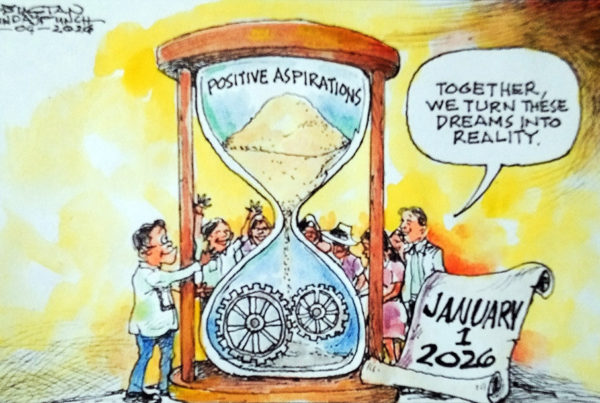Editorial
Pass the FOI Act now!
IT is now 2012, or over 26 years after the EDSA Revolution, which brought democracy back to the Philippines. Filipinos today enjoy the freedoms of speech, of the press, and of peaceable assembly for redress of just grievances. But one other inalienable freedom that the Constitution also guarantees — Freedom of Information — remains just a bill, stuck in the legislative wringer over the last 14 years, hobbled by the discombobulating “concerns” of the Executive, and mocked by restrictive administrative fiats of the judiciary, the House of Representatives, and even of the Office of the Ombudsman. The Freedom of Information Act long promised by the Constitution remains just a promise. And from the 12th to the present 15th Congress, despite the dozens of bills filed and re-filed, we simply keep returning to square one, like fools marching in place.
The second Aquino administration of Benigno C. Aquino III was installed in June 2010 on major summons for the citizens and public officials to trek the “daang matuwid“, rid the nation of corruption, and alleviate poverty. From birth, it is an administration that seems naturally betrothed to pushing and passing the FOI Act. Two years and two months in office hence, the administration and its Liberal Party-led coalition in the House of Representatives have yet to do the job. From various accounts of senior officials and pro-administration legislators, their less than vigorous interest to pass the FOI Act supposedly derives from a few reasons: 1. That some Executive agencies have become more transparent anyway they are already uploading online some budget and public finance documents; 2. That the FOI Act seems largely an issue of the middle class and the media; 3. That the FOI Act might not get the numbers needed in the House, and with the May 2013 elections coming soon, might divide more than unite the political parties.
Assuming that there is validity in their claim, online uploads of public documents are just half the transparency equation. The other, more important half of the equation is the public disclosure of documents on request or on demand of citizens asserting their right to access information in government custody. In a democracy, citizens need and have the right to know how public officials exercise their powers and authorities, how they spend public funds, what contracts and agreements they sign and seal on our behalf, what policy issues bother them that must also bother us so we may participate in making decisions.
The citizens after all are, as PNoy himself said, the “Boss”. The PUNCH joins the Philippine Press Institute in this call.
* * * * * *
FPJ pride
IN 2004, Fernando Poe Jr., popularly known as FPJ and dubbed king of Philippine movies, ran for president. He lost. Many believed his rival stole the victory. Barely a year after the election, FPJ died following a stroke. Many believed the pain of having been cheated out of the polls had contributed to his demise.
FPJ’s death created a void in the movie industry too difficult to fill. The legend had produced, directed and starred in over 200 films during his lifetime. His passing marked the end of an era.
Years later, Susan Roces, FPJ’s widow, rejected the National Artist award being offered FPJ posthumously by Gloria Macapagal-Arroyo, FPJ’s foe in 2004. But on Thursday, August 16, Roces finally agreed to receive the prestigious plum from President Benigno Aquino III, saying, “We agree to accept it from a truly, duly, elected president.”
We take pride and are overwhelmed with joy with this highest of honors conferred on our very own FPJ, who traces his roots to Mangatarem and San Carlos City.









